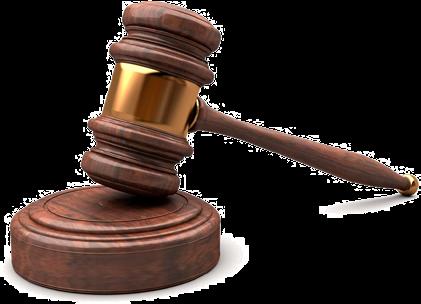
4 minute read
Business Beat DIRECTORS: BEWARE THE RISKS OF PERSONAL LIABILITY
The law places distinct obligations on directors. A breach of any can lead to personal liability
As the country recovers from the worst of the pandemic into a postBrexit world where labour is in short supply, energy prices are crippling for businesses and consumers alike, and inflation is at its highest level for over forty years, it is widely predicted that the country is heading for a recession of some kind. Corporate failures have already seen a sharp upturn and therefore, against this backdrop, it is more important than ever that directors are aware of their duties to their company and its creditors in order to avoid the risk of personal liability.
DUTIES UNDER LAW
Directors’ statutory duties owed to a company are set out in Sections 171 to 177 of the Companies Act 2006. These are s.171.Duty to act within powers (as set out in the company’s constitution); s.172.Duty to promote the success of the company; s.173.Duty to exercise independent judgment; s.174.Duty to exercise reasonable care, skill and diligence; s.175.Duty to avoid conflicts of interest; s.176.Duty not to accept benefits from third parties; and s.177.Duty to declare interest in a proposed transaction or arrangement.
If directors breach any of these duties they can be sued by the company, or a liquidator or administrator of the company, and be required to compensate the company for losses arising from the breach.
Where a company begins to encounter financial difficulties, it has long been established that directors also owe duties to the creditors. But the point at which that duty is engaged has long been the subject of argument and judicial scrutiny. However, in October 2022 the Supreme Court handed down its judgment in the case of BTI 2014 LLC v Sequana which has provided some clarity on this issue. Although this was not a unanimous decision, and the judges gave different reasons for their decisions, they agreed that where a company is bordering on insolvency, actually cashflow or balance sheet insolvency or where insolvent liquidation or administration is probable, directors have a duty to consider and must have regard to the interests of creditors in the way they conduct the business of the company.

From the point at which insolvent liquidation or administration cannot be avoided, directors have a duty to prioritise the interests of creditors because it is creditors alone who have an interest in the outcome of the insolvency process. In these circumstances, in order to establish liability on the part of the directors, the onus is upon the insolvency office holder to establish the point in time when the directors knew, or ought to have known, that liquidation or administration were inevitable. Where liability is established, the directors can be ordered to compensate the company for the losses caused by the breach and these funds will be paid into the insolvency estate for distribution amongst creditors.
There is overlap between a claim for breach of duty to prioritise the interests of creditors and a claim for wrongful trading under Section 214 of the Insolvency Act 1986. Here, a liquidator or administrator can bring a claim for wrongful trading against a director in circumstances where the director knew, or should have known, that the company could not avoid insolvent liquidation or administration but carried on trading regardless, such that when liquidation or administration commenced the loss to creditors had increased. In these circumstances a director can be ordered to pay a sum equivalent to the increase in the deficit between the point trading ought to have ceased and the date of actual cessation.
Restrictions After Insolvency
Directors should also be aware of restrictions on the re-use of company names in circumstances where a company goes into liquidation, as set out in section 216 of the Insolvency Act 1986.
This section applies to a person who has been a director of a company at any time in the 12 months prior to the company going into insolvent liquidation. Such a person is prohibited for a period of five years from being a director of, or involved in the management of, a company with the same
No Claim Personal Liability
Consider a July 2022 case where the Court of Appeal upheld a decision of the High Court in the case of PSV 1982 Ltd v Langdon. The ruling stated that where a creditor establishes liability for repayment of a debt against a company trading with a prohibited name, the creditor may take steps to enforce the debt against the director without first having to make a separate claim against the director under section 216. In this case, the director, Mr Langdon, was held liable for £1,125,824.67.
or a similar name. Breach of this prohibition is a criminal offence and renders the director personally liable for the debts of the company trading with a prohibited name.
There are, however, three exceptions to this general prohibition which are that the director applies for, and the court gives, permission; if the new company acquires the business of the insolvent company from a liquidator or administrator and notice is given to all the creditors of the insolvent company within 28 days; and the new company has been actively carrying on business for 12 months before the insolvency of the old company.
However, the individual circumstances of each case will determine which, if any, of the above options are available so it is essential to seek professional advice.
This may come as a surprise to an individual, especially in circumstances where they were no longer a director at the time proceedings were commenced by the creditor against the company and, as such, had no opportunity to participate in the proceedings.


Summary
The law and rulings are clear and so, where directors have any concerns about the financial stability of their company, they are strongly advised to seek professional advice in order to minimise the risks of personal liability.










